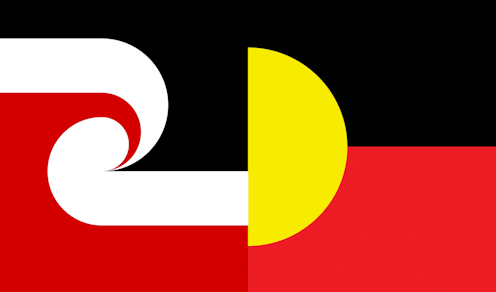Colonial ideas have kept NZ and Australia in a rut of policy failure. We need policy by Indigenous people, for the people
- Written by Dominic O'Sullivan, Adjunct Professor, Faculty of Health and Environmental Sciences, Auckland University of Technology and Professor of Political Science, Charles Sturt University

Crisis is a word often used in politics and the media – the COVID crisis, the housing crisis, the cost of living crisis, and so on. The term usually refers to single events at odds with common ideas of what’s acceptable, fair or good.
But in New Zealand, Australia and elsewhere, Indigenous policy can be portrayed as a different kind of crisis altogether. Indeed, it can often just seem like one crisis after another, one policy failure after another: poor health, poor education, all kinds of poor statistics. A kind of permanent crisis.
Policy success, on the other hand, often doesn’t fit the crisis narrative: record low Māori unemployment, for instance, or the Māori economy being worth NZ$70 billion and forecast to grow 5% annually.
It may be that crisis makes better headlines. But we also need to ask why, and what the deeper implications might be for Indigenous peoples and policy in Aotearoa New Zealand and Australia.
Colonialism as crisis
Last month I published a journal article titled “The crisis of policy failure or the moral crisis of an idea: colonial politics in contemporary Australia and New Zealand”. In it I argue that when public services don’t work well for Indigenous peoples, the explanation does not just come down to isolated examples of policy failure.
The solution is not that governments simply get better at making policy. Instead, colonialism itself is what I call “the moral crisis of an idea”.
Read more: Indigenous recognition is more than a Voice to Government - it's a matter of political equality
Earlier this year, former Australian prime minister Scott Morrison said that Indigenous policy usually fails because:
[Governments] perpetuated an ingrained way of thinking, passed down over two centuries and more, and it was the belief that we knew better than our Indigenous peoples. We don’t. We also thought we understood their problems better than they did. We don’t. They live them.
Morrison was describing a problem with the way the system ordinarily works. Yet a crisis is supposed to be something out of the ordinary, something that needs fixing. How, then, do we fix an idea?
Listening, reflection and justification
Colonialism presumes a moral hierarchy of human worth. It presumes Indigenous people shouldn’t have the same influence over public decision making as others (for example, ensuring a hospital or school works in their favour).
Addressing this problem is the point of the Māori Health Authority, established in New Zealand last month, and the Māori Education Strategy released in 2020.
The democratic theorist John Dryzek says there is a crisis of communication in modern democracy. This is because people understate the importance of listening, reflection and justification in public decision making.
Colonialism, however, doesn’t require listening, reflection or justification. Its essential idea is that some people just aren’t as entitled as others to a meaningful say in public policy.
Entrenching listening, reflection and justification in the workings of democratic politics would support different and non-colonial aspirations. This is something I have called “sharing the sovereign” in my 2021 book of the same name.
Sharing the sovereign
Sharing the sovereign means recognising many sites of decision-making authority. This is the point of the treaties being considered in Victoria, the Northern Territory and Queensland. It’s also the point of Te Tiriti o Waitangi/the Treaty of Waitangi in Aotearoa New Zealand.





